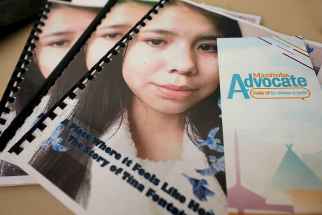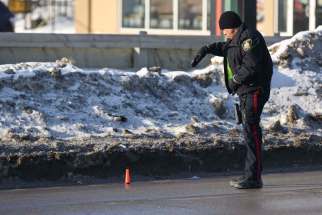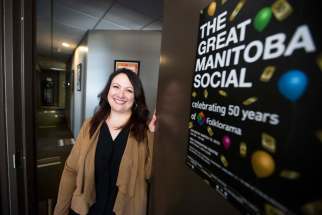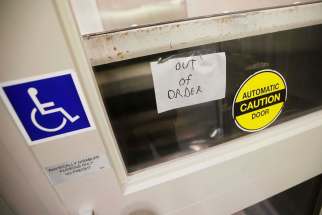Welcome to the Manitoba pavilion Folklorama organizers and volunteers celebrate its 50th anniversary with a classic Winnipeg social
Read this article for free:
or
Already have an account? Log in here »
To continue reading, please subscribe:
Monthly Digital Subscription
$0 for the first 4 weeks*
- Enjoy unlimited reading on winnipegfreepress.com
- Read the E-Edition, our digital replica newspaper
- Access News Break, our award-winning app
- Play interactive puzzles
*No charge for 4 weeks then price increases to the regular rate of $19.00 plus GST every four weeks. Offer available to new and qualified returning subscribers only. Cancel any time.
Monthly Digital Subscription
$4.75/week*
- Enjoy unlimited reading on winnipegfreepress.com
- Read the E-Edition, our digital replica newspaper
- Access News Break, our award-winning app
- Play interactive puzzles
*Billed as $19 plus GST every four weeks. Cancel any time.
To continue reading, please subscribe:
Add Free Press access to your Brandon Sun subscription for only an additional
$1 for the first 4 weeks*
*Your next subscription payment will increase by $1.00 and you will be charged $16.99 plus GST for four weeks. After four weeks, your payment will increase to $23.99 plus GST every four weeks.
Read unlimited articles for free today:
or
Already have an account? Log in here »
Hey there, time traveller!
This article was published 12/03/2019 (2465 days ago), so information in it may no longer be current.
A Manitoba cultural institution is marking an important milestone with another Manitoba cultural institution.
Event preview
The Great Manitoba Social
● Saturday, 8 p.m. to 1 a.m.
● RBC Convention Centre, North Building, 3rd Floor
● Tickets: $10 (including service fee) at folklorama.ca. All ages welcome but must be legal drinking age to purchase alcoholic beverages. ID required.
Featuring music by DJ Barry Kay, DJ Leo Salsero, and DJ Chilango and prizes from Thermëa, Third + Bird, Winnipeg Jets, Manitoba Liquor & Lotteries, Club Regent Event Centre, Powerland, Travel Manitoba, WestJet and more. Classic late lunch will be served.
Folklorama is turning 50 this year and, to celebrate, it’s throwing a big, ol’ fashioned Manitoba social with all the trimmings — right down to the cheese cubes and, probably, a rendition of Boot Scootin’ Boogie — at the RBC Convention Centre on Saturday. The Great Manitoba Social gets going at 8 p.m., and tickets are $10 at folklorama.ca.
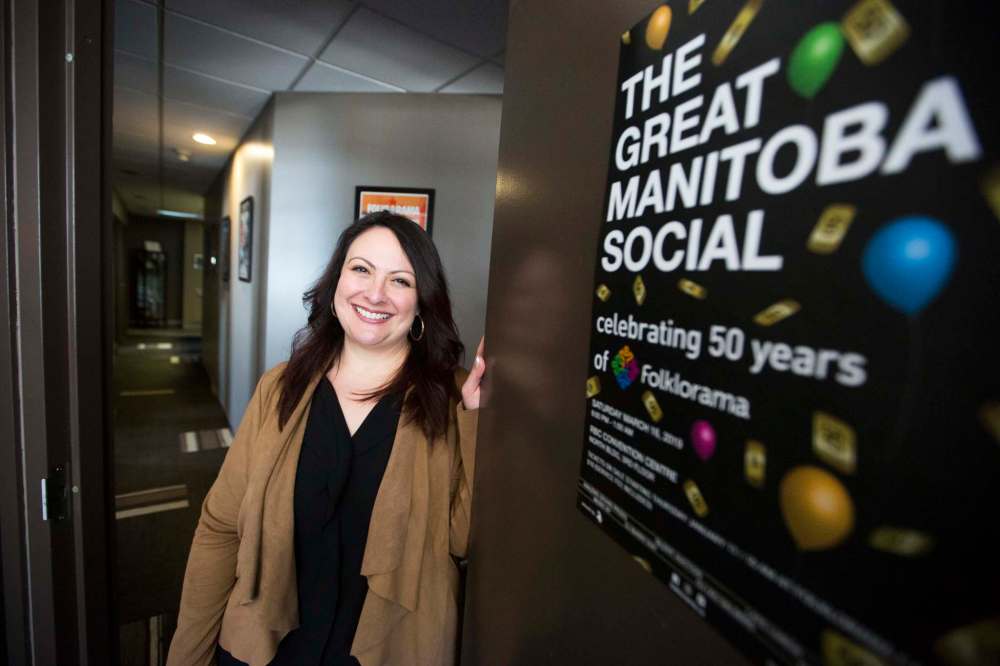
“There was a strong desire to have an event that was open to everyone,” says Teresa Cotroneo, Folklorama’s executive director. “With the model of our festival, although we’re all working at the same time while all the different pavilions are operating, it’s very rare that the volunteers and the public get to celebrate together. So, we wanted to do something that was at an accessible price point that people could just come and enjoy. (A social) is something that’s truly Manitoba, just like Folklorama.”
A golden anniversary is certainly cause for celebration, especially since Folklorama wasn’t meant to get here.
A little history: like several other now-beloved festivals that form strands in the cultural DNA of this city, Folklorama was conceived as a one-off, a week-long celebration for Manitoba’s centennial in 1970. Twenty-one communities participated in Winnipeg’s first multicultural festival and, although the event itself was nascent, its spirit of affordable, apolitical, hospitality-centred cultural exchange was already fully formed: on a $1 “passport,” Winnipeggers could see, hear, and taste the world without leaving the city.
Now, 50 years later, Folklorama is the largest and longest-running multicultural festival of its kind in the world, and a defining feature of summertime in Winnipeg. Last year’s two-week run in August saw about 445,000 visits to the festival’s 43 pavilions.
“We have 45 pavilions operating in 2019, and we have four of the original 21 pavilions who haven’t missed a year, which really speaks to the dedication of it,” Cotroneo says.
Indeed, to celebrate Folklorama is to also to celebrate the 20,000-plus volunteers who make this festival happen every year.

Lesia Szwaluk, 68, is one such volunteer. She’s been involved with the Ukraine-Kyiv Pavilion since 1971 in many different capacities, including president of its sponsoring organization, the Ukrainian Canadian Congress Manitoba Provincial Council, for 22 years.
It’s a big year for her pavilion: as one of the 21 original Folklorama pavilions, the Ukraine-Kyiv Pavilion will also be celebrating the big 5-0.
“Being involved this many years, we have many generations who have been involved — in our community, we do have fourth and fifth generations,” says Szwaluk, who is a first-generation Canadian. “We have recent arrivals who came over after Ukraine’s independence, and we have people who came over in the year 2000. It’s very exciting in our pavilion that we have the whole perspective of the community. We have children who started coming with their parents at four years of age and became volunteers, and now they’re having their children volunteer. It’s a real festival that brings our community, and all communities, together to share our cultures.”
“The festival really has acted as an anchor for so many of our ethno-cultural communities,” Cotroneo says, adding that it keeps them connected to not only each other but their roots as well.
Cotroneo’s own connections to Folklorama were personal long before they were professional. This is Cotroneo’s second year as executive director of the festival; previously she was the director of member and festival services, but she’s been involved with the festival in one way or another for 30 years.
She remembers attending the festival for the first time when she was 12.
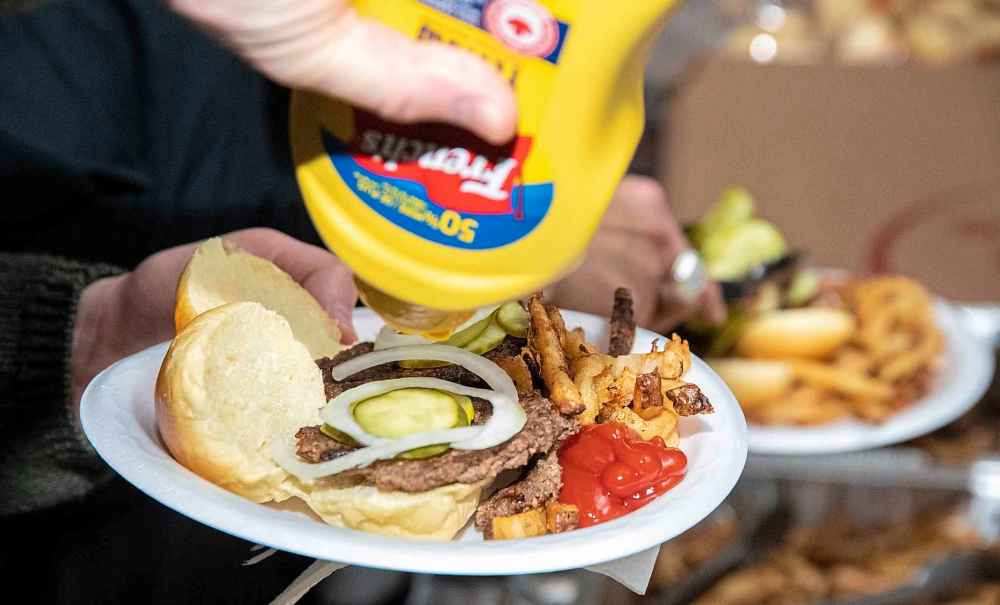
“My mom was a single mom and Folklorama was an affordable thing to do in the summer,” says Cotroneo, now 41. “We didn’t get to go on road trips — or any trips, to be honest with you. There were a couple pavilions I wanted to see, and one of them happened to be Italy-Sicily, which doesn’t exist anymore. I felt a sense of community and familiarity I hadn’t felt before. I asked my mom if could join the dancers, and she signed on to be a volunteer through the years.”
Like many first-generation Canadians — her mother came to Winnipeg from Italy at 14 — Cotroneo felt that push-pull between her identity as a Canadian and her Italian heritage. “There are still a lot of ties, a lot of history, and a lot of tradition with Italy,” she says. “You do struggle between the quote-unquote Canadian lifestyle and the traditions of your parents and grandparents. Here was a group of people who understood, and were also working through those emotions. It felt like a place of belonging.”
Looking ahead at the future of Folklorama, Cotroneo is eager to offer that connection, those places of belonging, to more communities in the city. “The demographics of the city have changed and will continue to change, so I think we’ll continue to see changes as far as what communities are members of the organization and what pavilions are represented on an annual basis,” she says. “We really look forward to mentoring those communities and bringing them on.”
There have been other kinds of growth, too. The 2018 edition of the festival saw the successful launch of digital ticketing, and Folklorama continues to focus on greening initiatives. But even as the festival expands and keeps up with the times, it hasn’t lost sight of its original ethos as a celebration of diversity.
“I think each community brings something unique to it every year,” Szwaluk says. “It’s the excitement of going and experiencing entertainment and history of that community, but I think the most important thing that a lot of people enjoy is trying the foods. Where else can you get that? Not every community has a restaurant. It’s an opportunity to come in, be entertained, have dinner and see what other cultures have to offer.”
“We’re very fortunate that we’re in a city and province that encourages the strength in our differences, and we’re not afraid to actually share those with each other, we’re proud of it,” Cotroneo says. “I think a big part of that is because of the existence of Folklorama.”
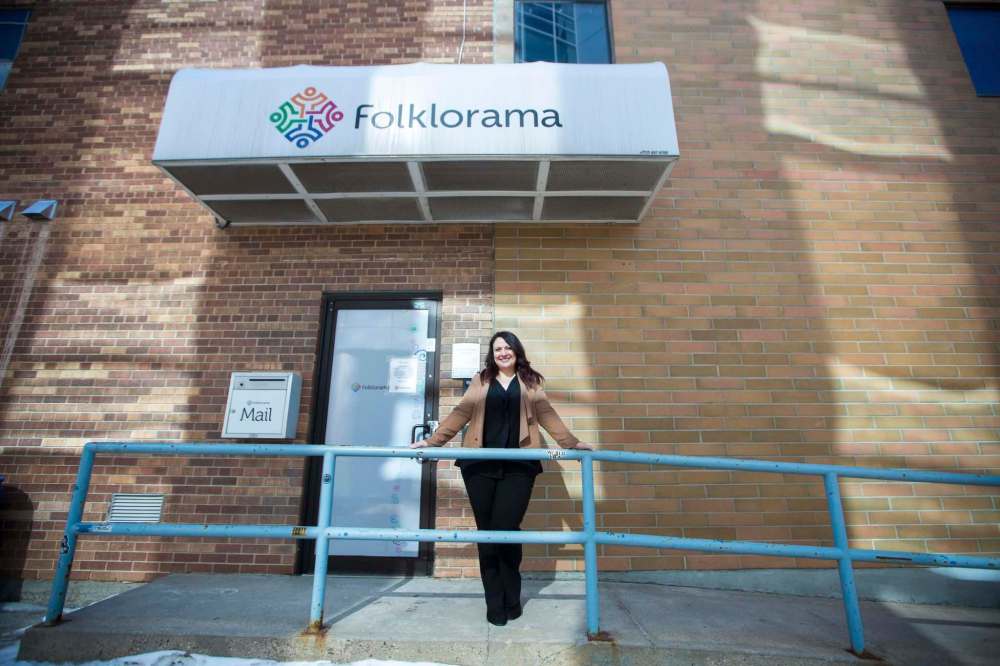
jen.zoratti@freepress.mb.ca
Twitter: @JenZoratti

Jen Zoratti is a Winnipeg Free Press columnist and author of the newsletter, NEXT, a weekly look towards a post-pandemic future.
Our newsroom depends on a growing audience of readers to power our journalism. If you are not a paid reader, please consider becoming a subscriber.
Our newsroom depends on its audience of readers to power our journalism. Thank you for your support.

